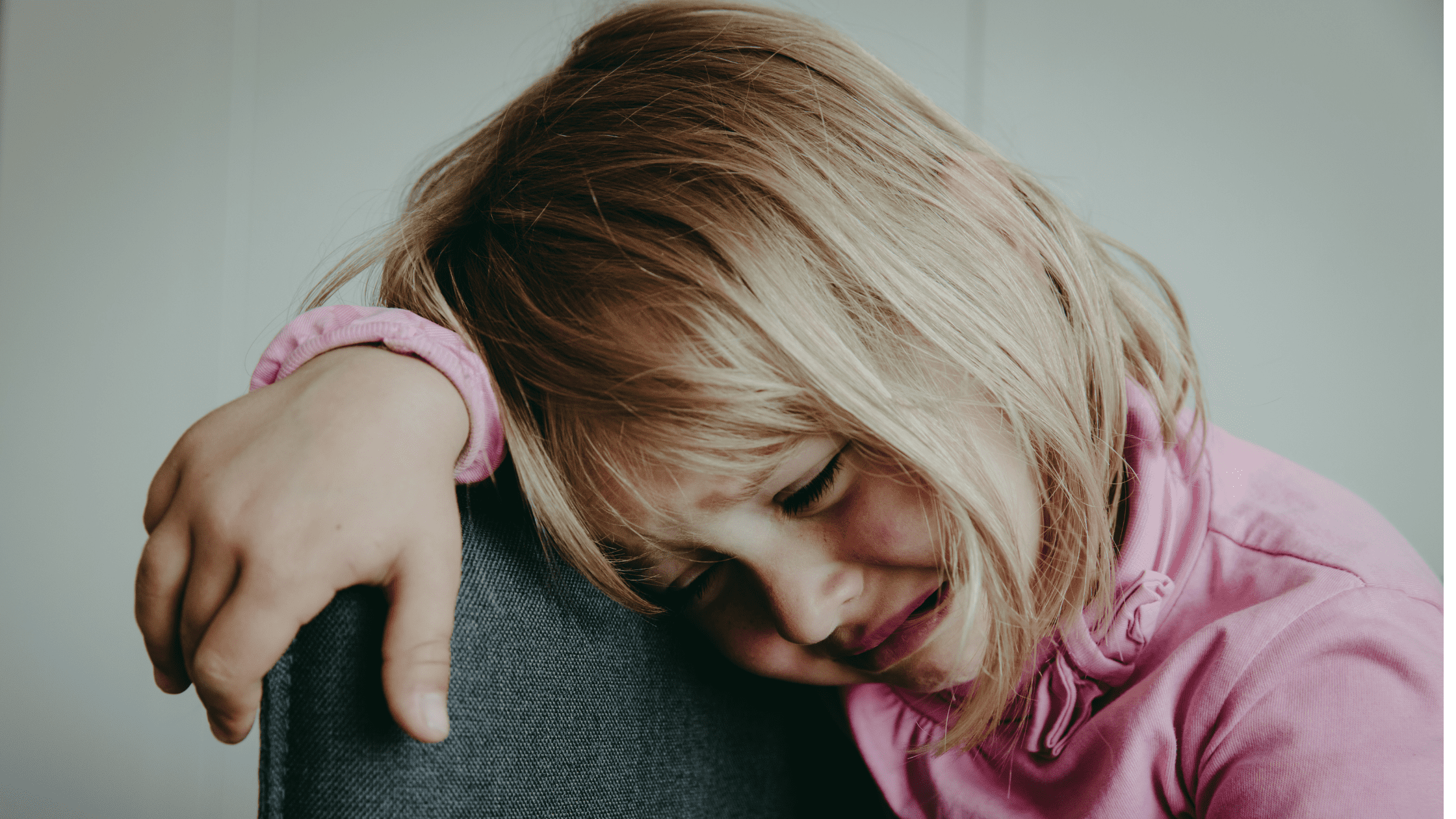Anxiety is one of the most common mental health concerns in the United States. According to the Anxiety and Depression Association of America, anxiety disorders are the most common mental illness in the country, affecting 40 million adults. That’s 18% of the population! What’s even more alarming is that this number only reflects those diagnosed with an anxiety disorder. It’s estimated that only 36.9% of those affected get help.
Anxiety can affect people of all ages it is widely present in children. In fact, according to the CDC, 9.4% of children aged 3-17 years old have an anxiety disorder. Having an anxious child can feel overwhelming. So what can be done to help our little ones?
Table of Contents
What is Childhood Anxiety?
Childhood anxiety is an experience that many children go through at some point in their lives. This condition can manifest in several different ways, including headaches, poor sleep, dizziness, constant worry and distress, or behavioral symptoms like avoidance and isolation.
Many factors can trigger childhood anxiety, such as major life transitions, changes within the family unit, abuse or neglect, and academic pressure or social expectations.
Though it can be uncomfortable and frightening at times, anxiety in younger children is usually temporary and tends to dissipate over time with the proper support and care. So if your child seems to be struggling with persistent worry or fear, it’s important not to ignore these warning signs, as early intervention is often vital in effectively managing childhood anxiety.
Child Anxiety Symptoms
When it comes to childhood anxiety, there are a number of common symptoms that parents should be on the lookout for.
Some of these symptoms include restlessness, difficulty concentrating and disrupted sleep patterns. In addition, children with anxiety may experience physical symptoms such as headaches, upset stomach, and rapid heartbeat. These symptoms can interfere with children’s daily lives, regularly making them feel stressed and anxious.
Does My Child Have Anxiety?
It’s normal for children to feel anxious from time to time. After all, they’re still learning about the world and figuring out how to cope with new situations. However, if your child seems to be constantly anxious or has difficulty dealing with everyday situations, it may signify an anxiety disorder.
There are a few different ways to tell if your child has anxiety. First, pay attention to their behavior. If they seem visibly agitated or are engaging in repetitive behaviors like excessive hand-washing or tapping, it may be a sign of anxiety.
Additionally, listen to how they discuss their feelings and worries. Children with anxiety often express their fears about what could happen rather than what is likely to happen.
Finally, pay attention to how their stress is impacting their life. If they’re missing school or social activities due to fear or worry, it’s a sign that their anxiety is becoming problematic. If you’re concerned that your child has anxiety, it’s important to talk to their doctor.
Child Anxiety Assessment
At its core, an anxiety assessment is a tool used to evaluate the level of anxiety that a child is experiencing. Typically conducted by mental health professionals or educators, this type of assessment involves a variety of assessments and questionnaires designed to assess everything from the severity and frequency of anxiety symptoms to the presence of other mental health-related issues.
Common tools used in anxiety assessments include interviews, self-reported measures, outdoor observation tools, parent reports, physiological measures, etc. Ultimately, an anxiety assessment helps to paint a complete picture of the underlying causes and symptoms of a child’s anxiety.
By identifying these factors early on in treatment, children can begin to receive appropriate care and support as soon as possible.
Natural Remedies for Anxiety in Children
Anxiety, such as separation anxiety in younger children, is a normal part of life for many children. But for some, anxiety can be more intense and disruptive to their everyday life, including sleep patterns.
If your child is struggling with anxiety, there are a number of natural remedies that can help:
- Herbs such as chamomile and lemon balm have long been used to reduce stress and promote relaxation.
- Omega-3 fatty acids, found in fish oil, have also been effective in reducing anxiety.
- Probiotics, which are live bacteria found in yogurt and other fermented foods, have been linked with lower levels of anxiety and depression.
- Exercise and physical activity can help reduce anxiety.
- Try simple breathing exercises with your child. Have them sit in a comfortable position and focus on taking slow, deep breaths. As they breathe out, have them imagine releasing their worries and fears.
- Chiropractic care can help your child to relieve anxiety by keeping the body in proper alignment.
Chiropractic Care Can Help Your Child’s Nervous System
Chiropractic care is an increasingly popular treatment option for both adults and children. In particular, chiropractors specialize in working with the nervous system, helping to support healthy nerve development and function and address any imbalances that may be causing problems or discomfort.
For children, nervous system health is especially important, as a healthy nervous system can help to regulate mood and emotions. With adjustments from a qualified chiropractor, a child’s nervous system can be restored to its optimal state, leading to a decrease in anxiety problems and stress, which will improve your child’s overall health.
Whether your child suffers from anxiety due to school pressures or playing sports, social anxiety, or just general stress caused by life events, regular chiropractic adjustments can help them feel calmer, reduce sleep problems, and feel more resilient. So if you’re like many parents and are looking for an effective way to support your child’s mental health and well-being, consider turning to chiropractic care.
The Best Chiropractic Care in Middleton, WI
Dr. Eric can create a plan to improve your child’s immune system, sleep issues, ear infections, and anxiety. We provide safe, gentle, and effective care for your growing and anxious child. Contact us and schedule your child’s first appointment today.


